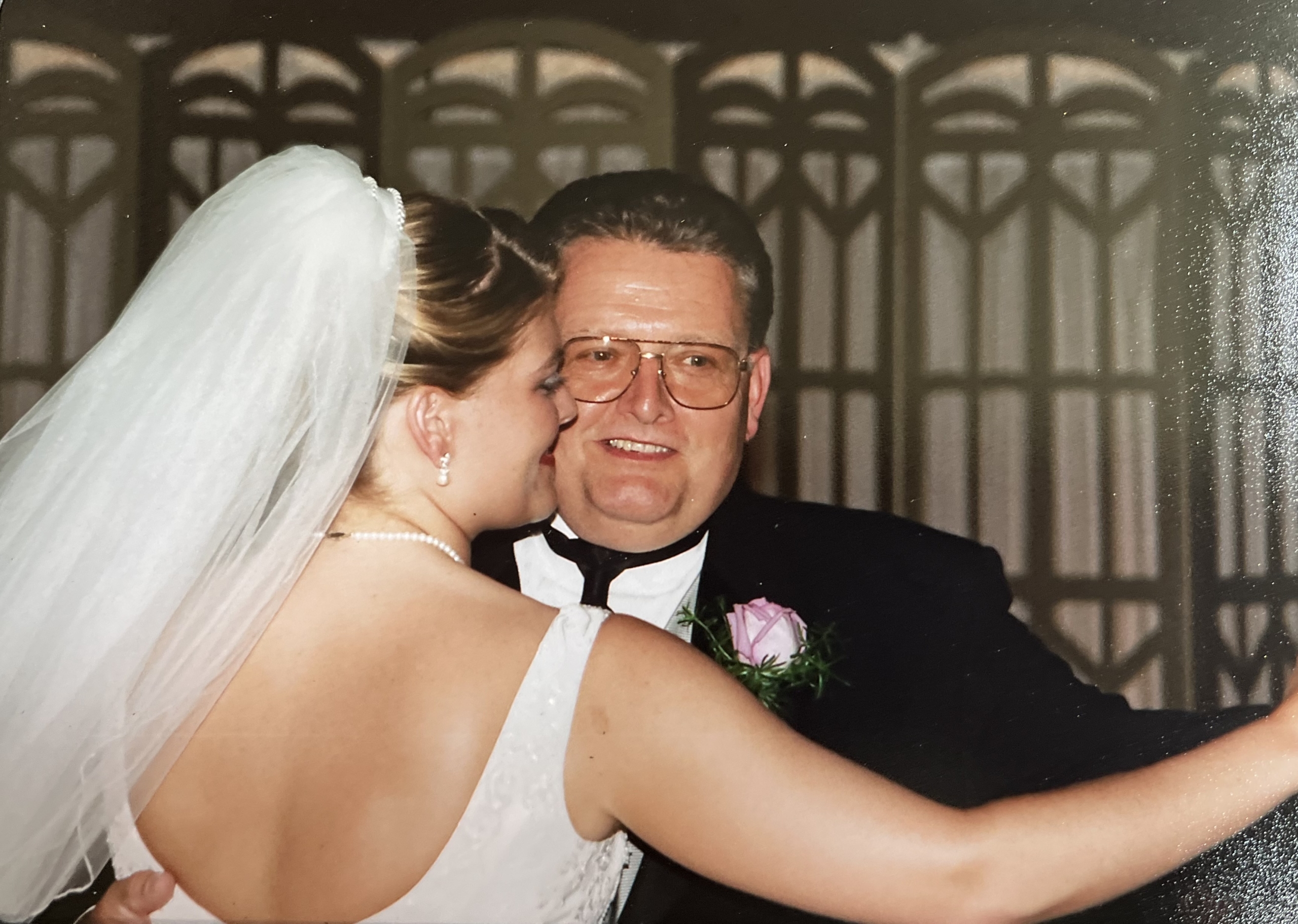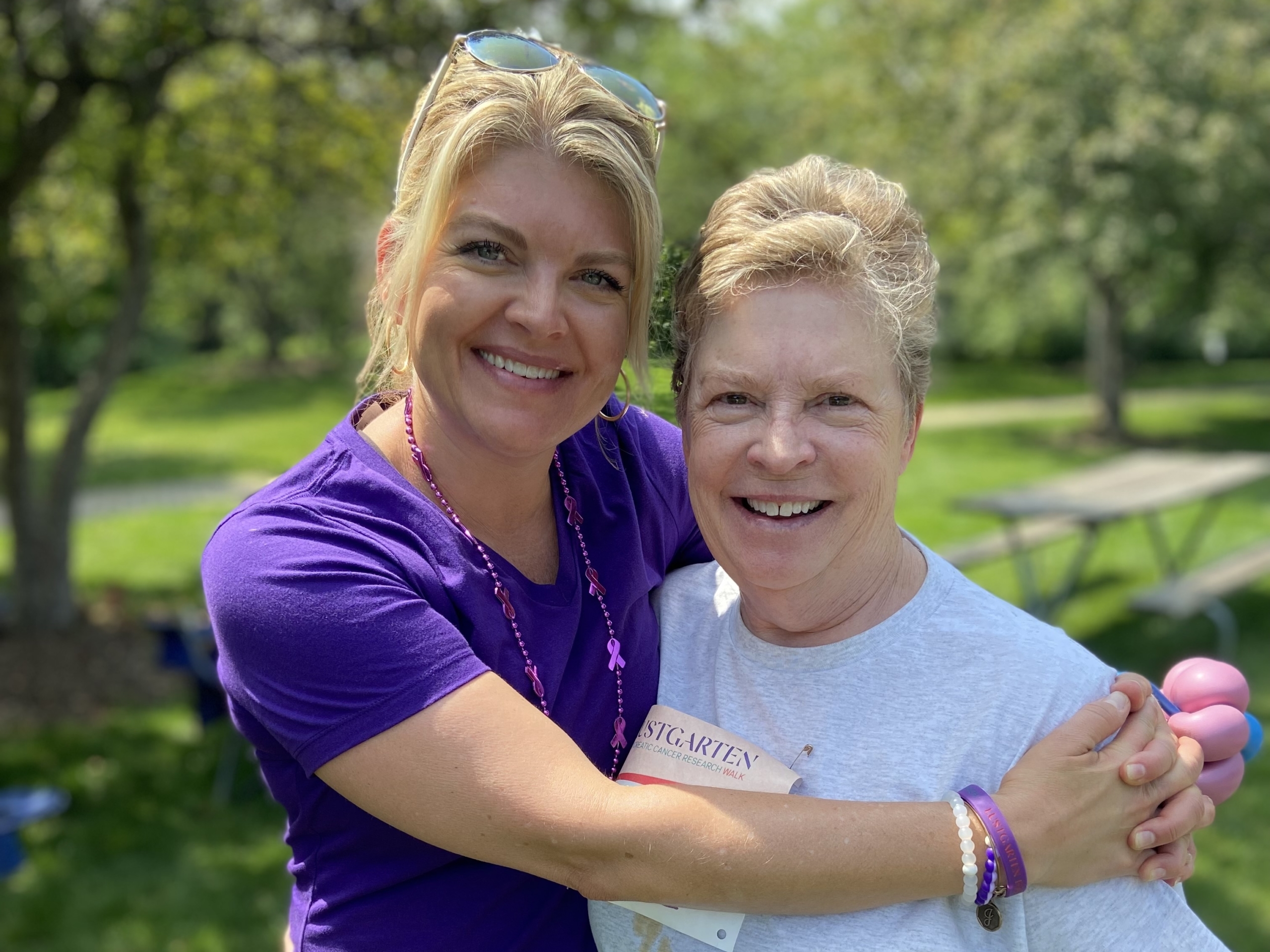Turning Grief into Action
Topic: Announcement, Hide on Homepage, Real Talk: Survivor, Patient & Family Stories, Your Source for Breaking News & Inspirational Stories

Jennifer Tedrow
I am honored to be a member of Lustgarten’s community dedicated to making an impact on the lives of people affected by pancreatic cancer. I am so grateful to this warm, welcoming community that understands the depth of loss and devastation this disease causes and that, like me, is fighting to ensure others don’t have to go through losing a loved one.
I knew nothing about pancreatic cancer until 2014 when my outgoing, funny, devoted father—the life of every party, the man who built snow forts when we were young and who loved spoiling everyone at Christmas, especially his grandchildren—was diagnosed with this unforgiving disease at just 66 years old.
My dad, Mark, was experiencing minor gastrointestinal issues until one day, my mom looked at him and terrified, saw he was jaundiced and rushed him to the emergency room. My family was completely blindsided when he was diagnosed with pancreatic cancer and gutted by the dismal survival statistics. However, as a family, we chose to pivot away from this negativity and instead concentrate on fighting against this disease and on managing what was still in our control—researching the best doctors, treatment facilities, and therapies for him. Even though I lived in the Chicago area with my husband and children, which was three hours away from my parents’ home in Michigan, I attended every major doctor’s appointment and procedure with my parents. My dad’s health took priority over almost everything else.
Luckily, my dad’s pancreatic cancer was diagnosed before it had metastasized. First, he underwent chemotherapy to shrink the tumor, due to its close proximity to a major blood vessel. The chemotherapy worked, because his tumor shrunk enough that he became a candidate for the Whipple procedure, which provides the best chance for long-term survival and is an option for less than 20% of pancreatic cancer patients. This complex surgery involved removing part of my dad’s stomach, the duodenum (the first part of the small intestine that connects to the stomach), the head of the pancreas, part of the bile duct, the gallbladder, and lymph nodes in the area around the pancreas.
After a difficult recovery, my dad had more chemotherapy, and despite hating what pancreatic cancer was doing to him, I cherished our time together while I accompanied him to his treatments. The chemotherapy was successful, and my family remained optimistic that he was cured. For a little over a year post-surgery, his scans were clear and showed no evidence of disease. We felt incredibly blessed to have this precious gift of quality time with him and were crushed when his cancer returned, so advanced that no therapy was able to stop it from growing and spreading.

After my dad died in 2016, I was compelled to do something to fight back against this terrible disease. I searched for an outlet for my crippling grief and found an announcement for the Lustgarten Foundation’s Naperville, IL Walk for Pancreatic Cancer Research near my home and attended. I was so impressed that 100% of every donation to the Lustgarten Foundation funds research. I spoke with the Naperville Walk Leader and Founder, Ann Zediker, and immediately joined her planning committee for the next Walk. My role grew over the years, and now I am the Naperville Walk Leader, and Ann remains my partner and a valued member of our Walk planning committee.
Together, we’re working on raising pancreatic cancer awareness throughout the year, and not just in the months leading up to the Naperville Walk every July. For example, for the past few years, we have partnered with the Aurora, IL Police Department on a No-Shave November event. The precinct raises money in memory of a police officer who passed away from pancreatic cancer and then generously donates the money to the Naperville Walk. To date, we’ve raised over $60,000 for the Lustgarten Foundation through this No-Shave November campaign.
I encourage anyone who wants to get involved to reach out to the Lustgarten Foundation and get the Foundation’s help with fundraising, marketing, Walk correspondence and Walk logistics. The most uplifting part of the Walk is seeing more survivors attend each year, a testament to the progress of the cutting-edge research the Lustgarten Foundation makes possible. In fact, there were no survivors at the Naperville Walk when I started attending in 2017, and thankfully by 2022, we had five cutting the ribbon to mark the start of the event. In 2019, we had our biggest walk ever, with 1,000 participants, and in 2022, we had our most successful fundraising year! I’m proud to play a role in this local initiative that has raised more than $1 million for the high-risk, high-reward research that is changing patients’ lives and providing so much hope for the future.
My husband, children, and I make volunteering and giving back to our schools and our community a priority. The Walk is a tangible, gratifying step I can take to give back to the pancreatic cancer community and honor my dad’s legacy. The Naperville Walk and all of the Lustgarten Foundation’s other events have a direct impact on the amount of research the Lustgarten Foundation can fund. More research leads to more advancements, resulting in more time possible for other patients and their families. Please join me in getting involved.
